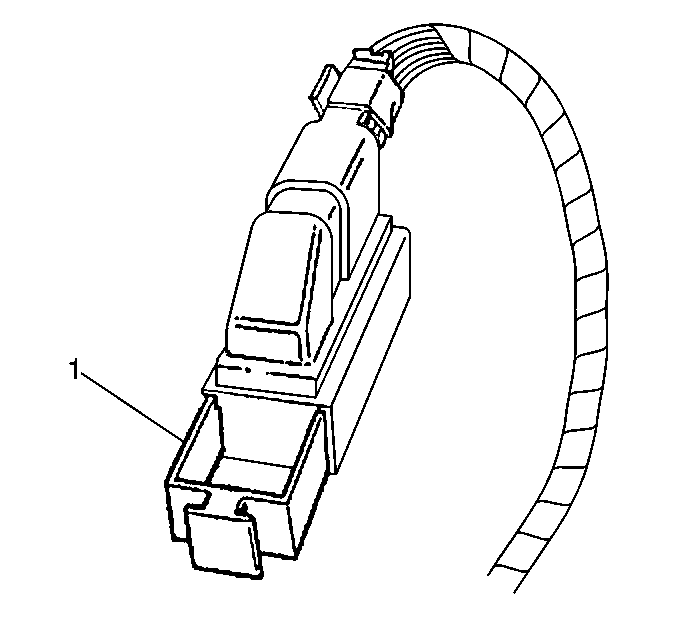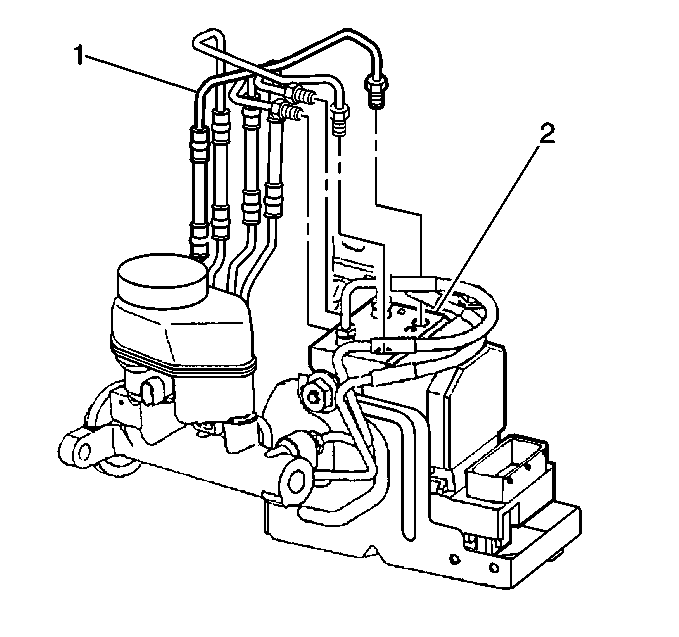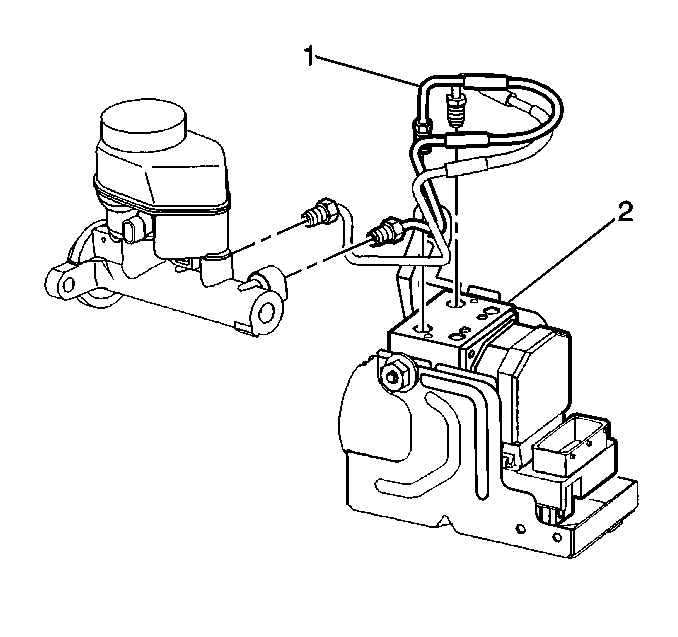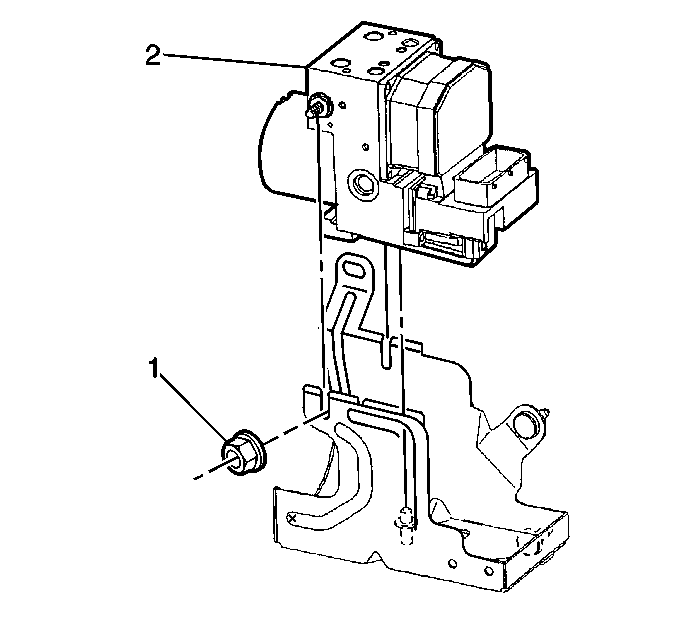Removal Procedure
Caution: For safety reasons, the Brake Pressure Modulator Valve (BPMV) must not be repaired; the complete unit must be replaced. With the exception of the EBCM/EBTCM, no screws may be loosened. If screws are loosened, it will not be possible to get the brake circuits leak-tight and personal injury may result.
- Turn the ignition switch to the OFF position.
- Pull out lock tab (1) from EBCM harness connector.
- Disconnect the EBCM harness connector.
- Disconnect the wheel cylinder brake pipes (1) from the BPMV (2).
- Disconnect the master cylinder brake pipes (1) from the BPMV (2).
- Remove the two nuts (1) that connect the BPMV to the BPMV bracket.
- Remove the BPMV (2) and EBCM as an assembly from the vehicle.
- Remove EBCM if replacing the BPMV only. Refer to Electronic Brake Control Module Replacement .


Important: Note the locations of the brake pipes in order to aid in installation.


Notice: When removing the brake pressure modulator valve, protect the vehicle exterior from possible brake fluid spillage. Brake fluid can cause damage to painted surfaces.
Installation Procedure
- Install EBCM if replacing the BPMV only. Refer to Electronic Brake Control Module Replacement .
- Install BPMV (2) and EBCM as an assembly into the BPMV bracket. Align the flats of the studs on the BPMV with the BPMV bracket.
- Install the two BPMV to BPMV bracket nuts (1).
- Install the master cylinder brake pipes (1) on the BPMV (2).
- Install the wheel cylinder brake pipes (1) on the BPMV (2).
- Connect the EBCM harness connector. Push in lock tab (1).
- Fill and bleed the brake hydraulic system. Refer to Hydraulic Brake System Bleeding in Hydraulic Brakes.
- Turn the ignition switch to the ON position, engine off.
- Perform the ABS diagnostic system check. Refer to Diagnostic System Check - ABS .

Notice: Use the correct fastener in the correct location. Replacement fasteners must be the correct part number for that application. Fasteners requiring replacement or fasteners requiring the use of thread locking compound or sealant are identified in the service procedure. Do not use paints, lubricants, or corrosion inhibitors on fasteners or fastener joint surfaces unless specified. These coatings affect fastener torque and joint clamping force and may damage the fastener. Use the correct tightening sequence and specifications when installing fasteners in order to avoid damage to parts and systems.
Tighten
Tighten the two BPMV to BPMV bracket nuts to 12 N·m (8
lb ft).

Important: If a new BPMV is being installed, remove the shipping plugs from the valve openings in the compartment during the next step.
Important: Use the locations noted during removal.
Caution: Make sure brake pipes are correctly connected to brake pressure modulator valve. If brake pipes are switched by mistake, wheel lockup will occur and personal injury may result. The only two ways this condition can be detected are by using a Scan Tool or by doing an Antilock stop.

Tighten
Tighten all of the brake pipe fittings to 15 N·m (11 lb ft).

